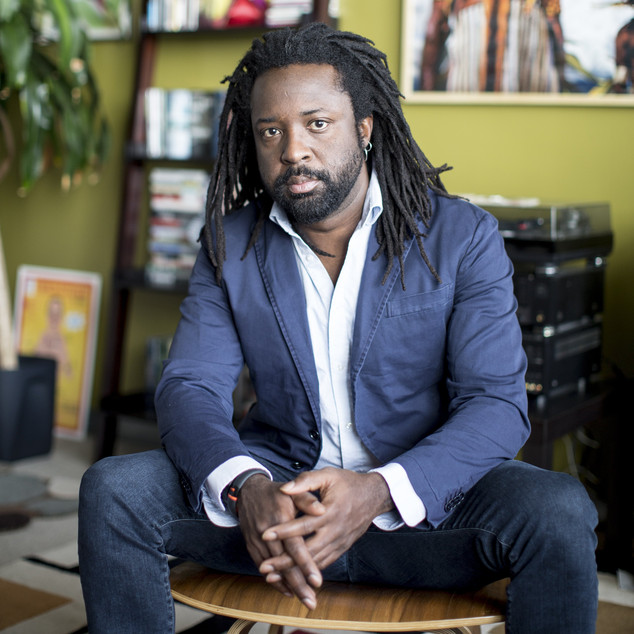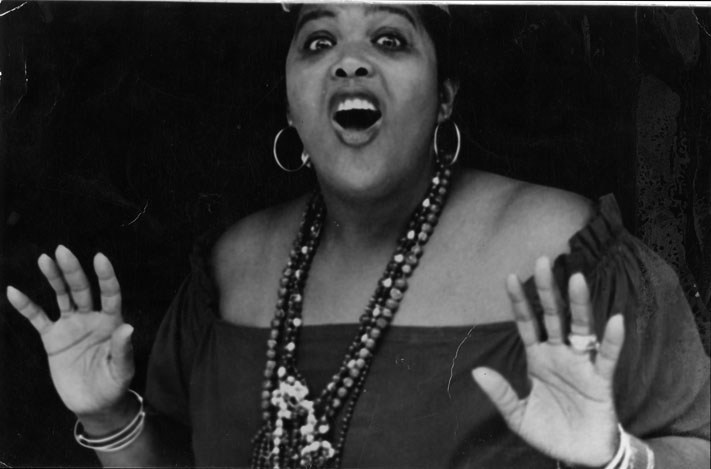Those who read my Book of the Week feature on Facebook are aware I hold Jamaican-born author, Marlon James, in very high regard. I deem his second novel, The Book Of Night Women, the best novel I’ve read.

That’s an audacious claim, because I’ve read hundreds of novels, including some of the great French, English and Russian classics. Novels by writers who have won prestigious prizes, including the Nobel Prize for literature. And novels that make top 10 and top 100 lists.
I, for instance, have read every novel written by American writer Toni Morrison, who won the Nobel prize in 1993, as well as masterpieces by Colombian Gabriel García Márquez and South African-born John Maxwell Coetzee, Nobel laureates in 1982 and 2003, respectively. And most of the fictional works by noted Israeli author, Amos Oz, who won some two dozen prizes.
What surprised me is that others who read as much or more than I do share my opinion of The Book Of Night Women. I thought I was the only one besotted by this story and the way it’s told. It is an animal all by itself.
I’m a huge fan of James because he continues a strong and potent tradition of outstanding writers of fiction from the island. His third novel, A Brief History Of Seven Killings, won the prestigious Man Booker Prize in 2015. One judge suggested that, compared to the other entries that year, the competition wasn’t even close. It is to be made into a series on Amazon TV.
His fourth, Black Leopard Red Wolf, released in February 2019, belongs to a genre I never read. I had to put it aside for a brief period because, frankly, it is a difficult and at times disturbing read. At the time of writing (March 2019), I’m still plowing through it. That’s what fans do. This book is the first in a trilogy.
I’m pleased about James and Andrea Levy, who died in February 2019 (gone too soon), because while Jamaica produced other outstanding writers of fiction, it is the poets who’ve captured Jamaican imagination and hearts the last 100 years or so, and who’ve won the most prizes.
As children in school, Claude McKay’s poetry was a staple, especially “Flame-Heart” and “I Shall Return.” Another poem, “If We Must Die,” gained notoriety because it was this sonnet that Winston Churchill is supposed to have used to convince United States President Franklin Delano Roosevelt to join the Allies in fighting the Axis Powers during World War II:
If we must die—let it not be like hogs
Hunted and penned in an inglorious spot,
While round us bark the mad and hungry dogs,
Making their mock at our accursed lot.
If we must die—oh, let us nobly die,
So that our precious blood may not be shed
In vain; then even the monsters we defy
Shall be constrained to honor us though dead!
Oh, Kinsmen! We must meet the common foe;
Though far outnumbered, let us show us brave,
And for their thousand blows deal one deathblow!
What though before us lies the open grave?
Like men we’ll face the murderous, cowardly pack,
Pressed to the wall, dying, but fighting back!

Jamaica’s most loved poet, Louise Bennett Coverley, was groundbreaking. She wrote her poetry in defiance of those who objected to using the Jamaican language, which most refer to as patois, rather than standard British English. Miss Lou’s poems are performance drama, not meant to be merely recited. Annual Jamaica Cultural Development Commission competitions include dramatic presentations of her poems, mostly by primary and high school students.
Poetry as performance took a decided turn in the 1970s with a new genre, dub poetry. Early exponents included Mikey Smith, Linton Kwesi Johnson and Oku Onuora, as well as Mutabaruka, Yasus Afari, among others.
The following are my favorite lines from my favorite dub poem, written by Smith:
mi seh mi cyaan believe it
what a night what a plight
an we cyaan get a bite
mi life is a stiff fight
an mi cyaan believe it
Mutabaruka, Jamaica’s most renowned dub poet, first made his mark with the wailing “Everytime a Ear de Soun.” Another of his poems, “Whey Mi Belang?” speaks to the pain of lost roots:
I affe guh trace
My original place
Try fe fine out
Wa mi is all about
A come ya fram de east
Dat I know
But in de east
There is no negro
Nigga?
Dat I caa figga
West Indian?
A which country I belang?
Lorna Goodson is one of Jamaica’s most decorated poets and the most well known to have emerged the last 30 years. She won the OCM Bocas Prize for Caribbean literature in 2014 and Yale University’s prestigious Windham-Campbell Literature Prize in 2018. She succeeded Mervyn Morris, one of Jamaica’s noted poets in the post-independence era, as Jamaican poet laureate in 2017.
Fiction writers, in the meantime, struggled to gain traction among broader Jamaican society. The names are known, some of the works are read, but unlike the poets and playwrights (Jamaican plays were hugely popular. Who can forget Johnny Reggae, the 1978-1979 Jamaica Pantomime by Barbara Gloudon, or the 1984 drama, Whiplash, by Ginger Knight?), no Jamaican fiction writer nor a specific work of fiction gained popular following. Not far beyond academia and required reading in schools.
As a high school student, we had Andrew Salkey as required reading. His books, Hurricane, Riot and Earthquake were hilarious reads. Harvard Professor Orlando Patterson, best known for his award-winning nonfiction writing, nevertheless got a lot of buzz in late 1960s and the 1970s with The Children of Sisyphus. I particularly enjoyed his Die the Long Day, the story sticking in my mind nearly 40 years after reading it.
It is a pity Jamaican novelists struggle for recognition and even acknowledgment among their own, for good Jamaican literature is out there, from those on the soil and in the diaspora.
Some credit Thomas Macdermot (Tom Redcam) for initiating “modern Caribbean writing.” His first novel, Becka’s Buckra Baby, was published in 1904. Herbert de Lisser, mentored by his newspaper editor father and by Macdermot, was possibly the most noted novelist in early twentieth century Jamaica. His most famous work, The White Witch of Rosehall, was published in 1929 and was, for years, a staple in souvenir shops at tourist destinations on Jamaica’s north coast.
Jamaican authors, including a few novelists and short story writers, were highly cherished in the post-World War II period, especially those whose stories spoke to a rising Caribbean self-consciousness and the quest for self-determination and independence. Victor Reid emerged in the 1940s and continued producing good material up until the 1980s. Roger Mais was especially prolific in the mid-1950s, producing noted works such as The Hills Were Joyful Together (1953), Brother Man (1954) and Black Lightning (1955). Death at a relatively young age in 1955 ended his profligacy.
The last 40 years has seen a flourishing of Jamaican novelists. Anthony Winkler wrote popular novels such as The Painted Canoe, The Lunatic and The Great Yacht Race. Colin Channer gained traction with titles inspired by Bob Marley songs – Waiting in Vain, Satisfy My Soul and Passing Through. He was the inspiration behind the Calabash International Literary Festival held in Jamaican between 2001 and 2010.
Andrea Levy and Marlon James have emerged the most internationally successful among the new crop of Jamaican writers. Levy’s 2004 novel, Small Island, won the Orange Prize for Fiction, the Whitbread Book of the Year and the Commonwealth Writers’ Prize. It was made into a two-part BBC television miniseries and is being adapted for stage performance. Her 2010 novel, The Long Song, won the Walter Scott Prize, was a Man Booker Prize finalist, and was made into a three-part miniseries on BBC.
James’ The Book of Night Women won the Dayton Literary Peace Prize, the Minnesota Book Award, and was a National Book Critics Circle Awards finalist. In addition to the Man Booker Prize, A Brief History of Seven Killings won the Green Carnation Prize, the Anisfield-Wolf Book Award, the OCM Bocas Prize for Caribbean Literature, and was a National Book Critics Circle Award finalist.
A Brief History of Seven Killings is being made into a series for Amazon TV while James’ most recent book, Black Leopard Red Wolf, was optioned for movie production by Warner Brothers.
Eron Henry is author of Reverend Mother, a novel. Ole Time Sumting blog was recognized with an Award of Merit by the Religion Communicators Council in April 2018. You may listen to his most recent podcast on Soundcloud or YouTube.
Well stated Eron. You took me back through the ages of great Jamaican writers, some of whom I am inspired by. Hence, influenced me to become a author, playwright, songwriter and poet. Keep writing us these reminders of #oletimeaumting
Does Kwame Dawes, co-founder of Calabash, Novelist and Poet, who grew up in Janaica, deserve a passing mention, or is he disqualified by his Ghanaian birth?
Kwame Dawes deserves mention. Andrea Levy is actually British born to Jamaican parents. Her stories were based on Jamaica (such as The Long Song) or both Britain and Jamaica (Small Island). So Dawes more than qualifies
As do others that I could have mentioned.